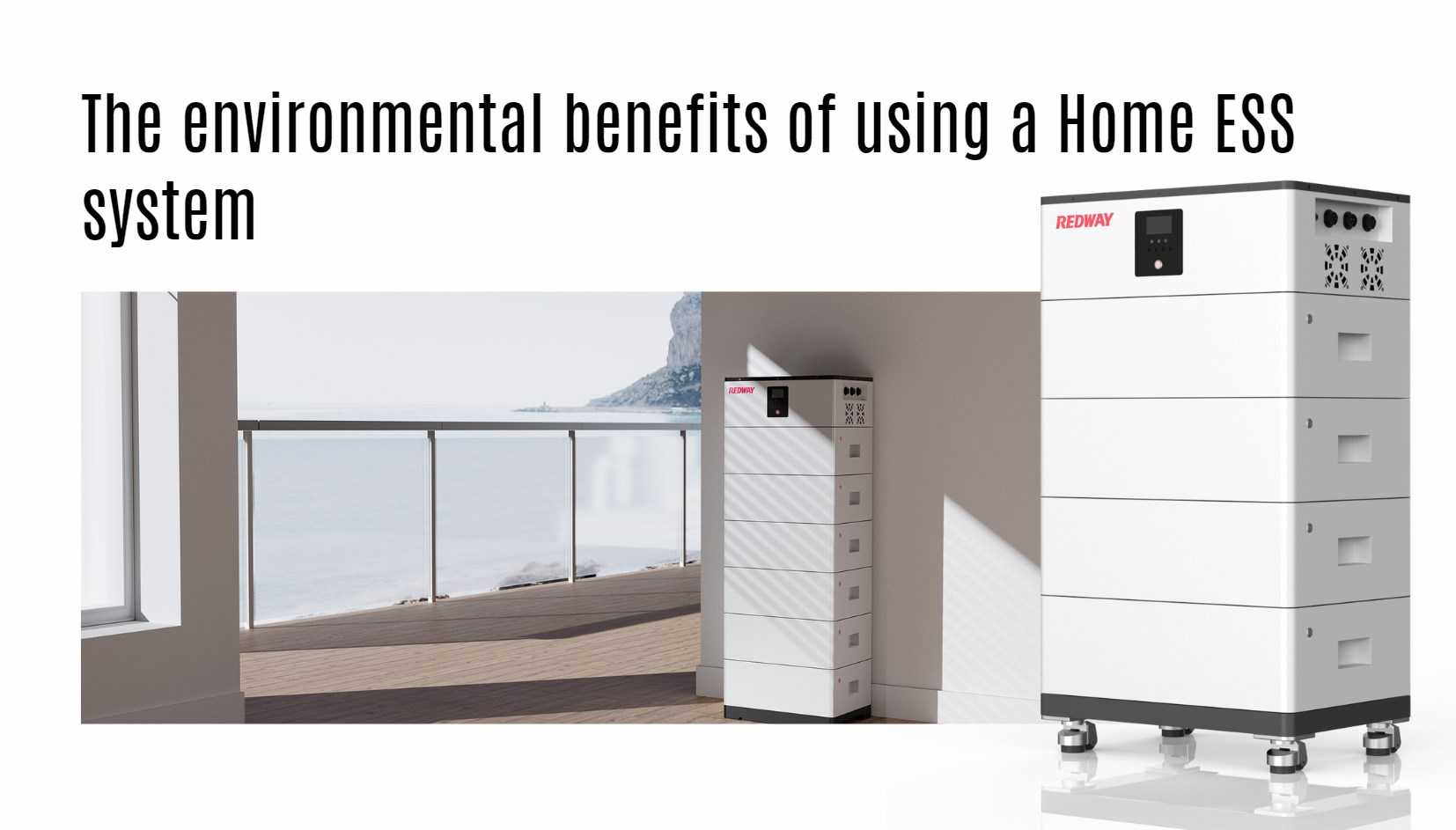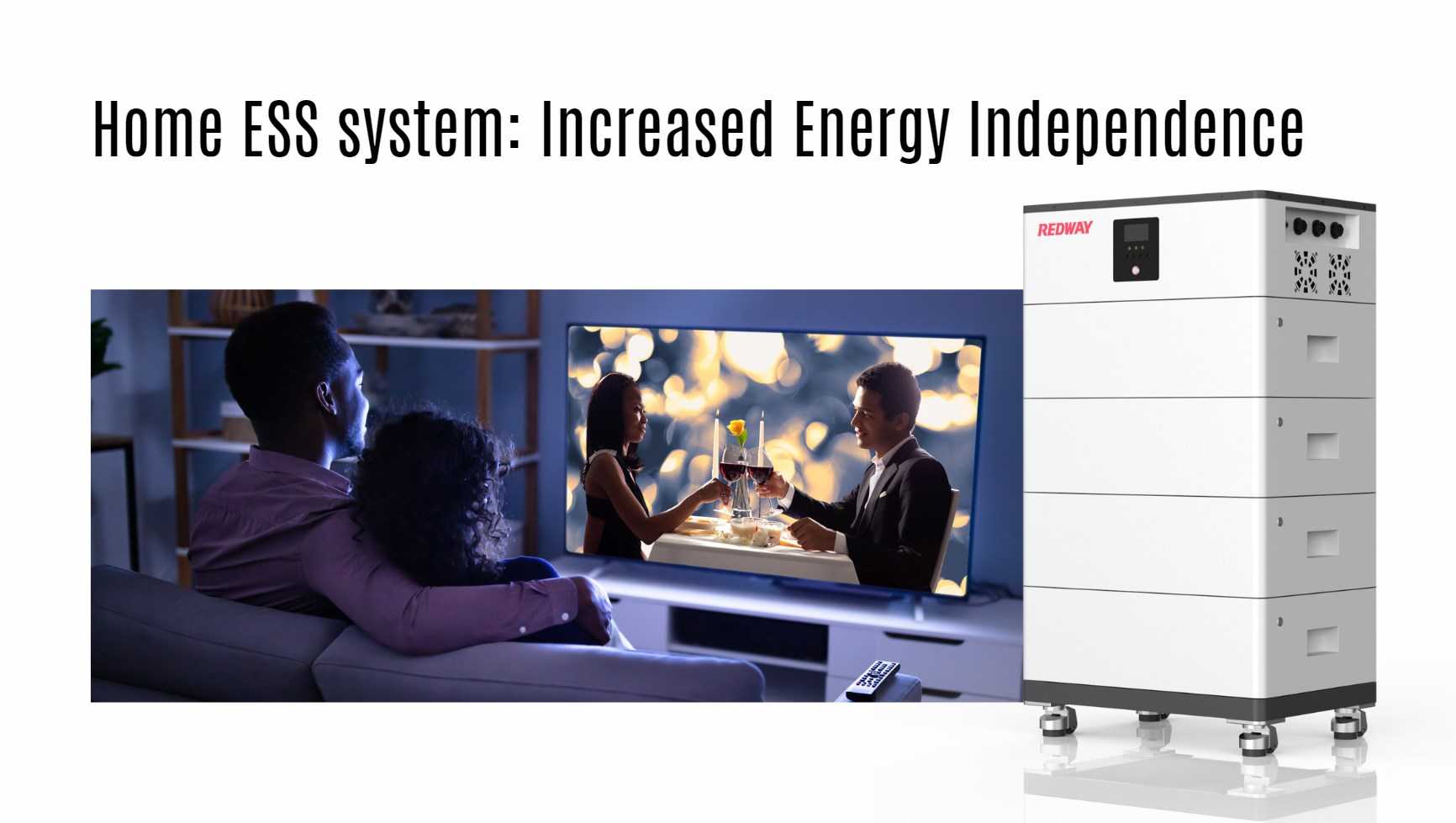Home energy storage systems (HESS), also known as home energy management systems (HEMS), are becoming increasingly popular among homeowners. They allow households to store excess energy generated by renewable sources such as solar panels or wind turbines for later use. This technology offers a range of environmental benefits, including reduced carbon emissions and increased energy independence. In this article, we will explore the environmental benefits of using a home ESS system, with a focus on the role of Redway, a custom LiFePO4 battery module manufacturer.
Reducing Carbon Emissions
One of the most significant environmental benefits of using a home ESS system is the reduction of carbon emissions. Homeowners can generate their own electricity through renewable sources such as solar panels or wind turbines, reducing their reliance on fossil fuels. This means that less energy is required from the grid, resulting in a reduction of greenhouse gas emissions associated with traditional electricity generation.
The use of a LiFePO4 battery module in a home ESS system further enhances its environmental benefits. LiFePO4 batteries are known for their high energy density and long cycle life, making them an ideal choice for renewable energy storage. They are also more environmentally friendly than other types of batteries, as they do not contain toxic heavy metals such as lead or cadmium. In addition, they are more easily recyclable than other types of batteries, reducing the environmental impact of their disposal.
Wholesale lithium golf cart batteries with 10-year life? Check here.
Increased Energy Independence
Another benefit of using a home ESS system is increased energy independence. With a home ESS system, homeowners can generate and store their own electricity, reducing their dependence on the grid. This not only provides a sense of security in the event of power outages but also reduces the strain on the grid during peak usage times.
Moreover, a home ESS system can allow homeowners to use energy more efficiently. With the ability to store excess energy generated during low usage times, homeowners can use this stored energy during peak usage times, when electricity is typically more expensive. This reduces the need for utilities to generate additional electricity during peak demand, reducing the environmental impact of traditional electricity generation.
Want OEM lithium forklift batteries at wholesale prices? Check here.
Role of Redway in Environmental Benefits of HESS
Redway, a custom LiFePO4 battery module manufacturer, plays a vital role in the environmental benefits of using a home ESS system. Their LiFePO4 batteries are designed to provide efficient, reliable, and sustainable energy storage solutions for residential and commercial use. The use of LiFePO4 batteries in home ESS systems reduces carbon emissions, increases energy independence, and improves energy efficiency.
Furthermore, Redway is committed to environmentally sustainable practices in the manufacturing of their LiFePO4 battery modules. Their production process emphasizes the use of environmentally friendly materials and technologies, reducing the environmental impact of their products.
Conclusion
Home energy storage systems offer a range of environmental benefits, including reduced carbon emissions and increased energy independence. The use of LiFePO4 batteries in home ESS systems enhances these benefits, providing efficient, reliable, and sustainable energy storage solutions. Redway, a custom LiFePO4 battery module manufacturer, plays an important role in the environmental benefits of HESS, providing environmentally sustainable energy storage solutions for residential and commercial use. With the increasing importance of reducing our carbon footprint and achieving energy independence, home ESS systems and LiFePO4 batteries offer a promising solution.







